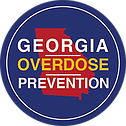Good Samaritan 911 Fatal Overdose Prevention Law and Naloxone

Did you know that accidental overdose deaths are the leading cause of accidental death in the United States? Accidental overdose deaths exceed even motor vehicle accidents in people 25 to 64. Many of these deaths would have been preventable if emergency medical assistance were to have been summoned. But people using drugs or alcohol illegally often fear arrest if they call 911, even in cases where they need emergency medical assistance for a friend or family member who may have overdosed. The best way to encourage an overdose witness to seek medical help is to exempt them from arrest and prosecution for minor drug and alcohol law violations, an approach often referred to as Good Samaritan 911 law.
Georgia’s Good Samaritan law is called the Georgia 9-1-1 Medical Amnesty Law. This law greatly increases the chance of someone surviving an overdose, like that of surviving a heart attack, because living greatly depends on how fast one receives medical assistance. Witnesses to heart attacks rarely think twice about calling 911, but witnesses to an overdose often hesitate to call for help or simply don’t make the call for fear of being arrested or punished. Research confirms that the most common reason people cite for not calling 911 is fear of police involvement.
It is important to note here that the Georgia 9-1-1 Medical Amnesty Law gives first responders and others access to a drug called naloxone (Narcan) which reverses the effects of the overdose. The use of naloxone by authorized trained first responders, including law enforcement officers, firefighters, and EMS personnel is critical to saving the life of someone overdosing. The law also makes it easier for those likely to be in the position to save a life to do so by administering naloxone, the standard treatment for opioid overdose. First, the bill authorizes physicians licensed to practice in Georgia acting in good faith and in compliance with the relevant standard of care to prescribe naloxone “for use in accordance with a protocol specified by such practitioner to a person at risk of experiencing an opioid related overdose or to a pain management clinic, first responder, harm reduction organization, family member, friend, or other person in a position to assist a person at risk of experiencing an opioid related overdose.” Pharmacists are permitted to fill such prescriptions, and any person acting with reasonable care and in good faith is permitted to administer naloxone to a person believed to be experiencing an opioid overdose in accordance with protocol. Additionally, the law outlines limited civil and criminal immunity for medical professionals who prescribe naloxone, and laypeople who administer it to a person suspected of suffering from an opioid overdose. The law also provides limited immunity from certain underage drinking offenses for minors who seek help in the event of an alcohol overdose.
To learn more about the life saving use of naloxone Click Here.
To read the law in its entirety please Click Here.
Twenty states and the District of Columbia have enacted policies to provide limited immunity from arrest or prosecution for minor drug law violations for people who call for help at the scene of an overdose. Georgia joined the participating ranks of Good Samaritan 911 states on April 24, 2014 and from April 24th to September 17th there have been 34 documented overdose reversals. Georgia 9-1-1 Medical Amnesty Law does not preclude people from being arrested for other offenses, such as selling or trafficking drugs, or driving while drugged. The law protects only the caller and overdose victim from arrest and/or prosecution for simple drug possession, possession of paraphernalia, and/or being under the influence.


